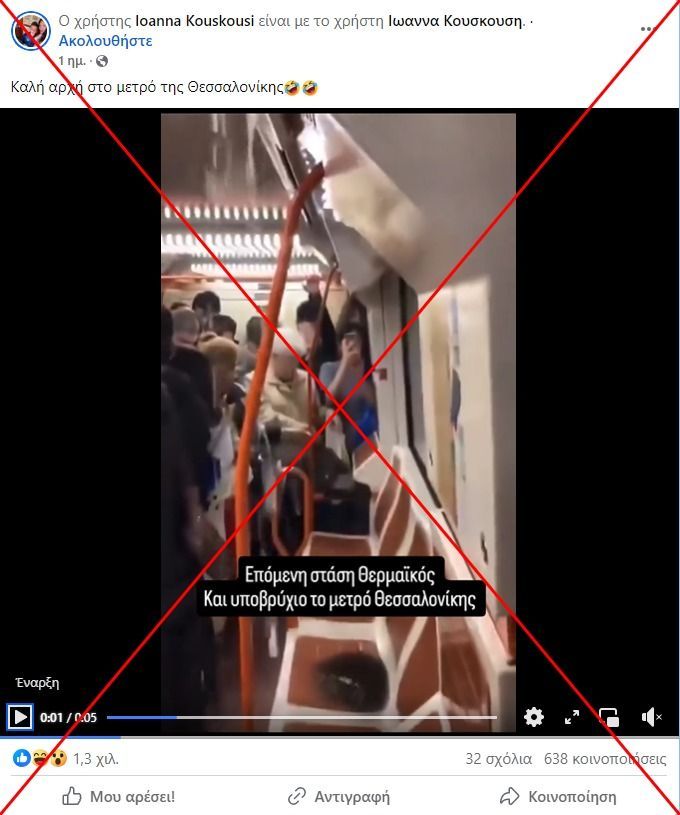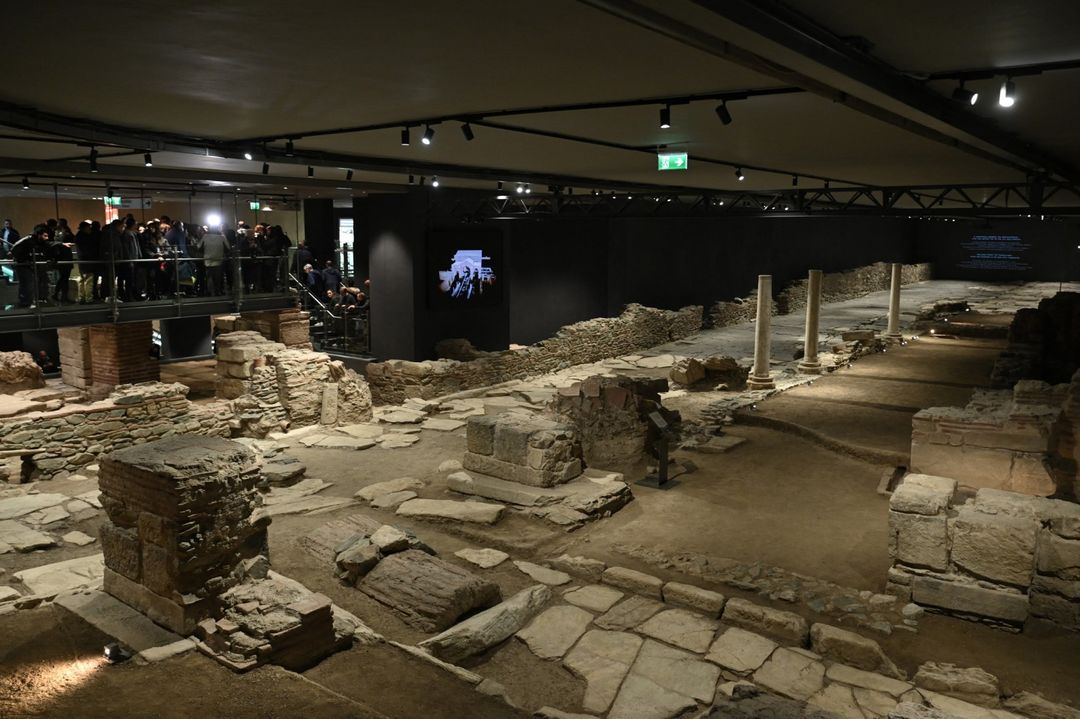A new subway system, long dogged by archaeological and financial issues, was finally inaugurated in the Greek city of Thessaloniki by Prime Minister Kyriakos Mitsotakis at the end of November 2024, more than 10 years later than planned. Amid heavy rain on the day of the opening, a video immediately began circulating on social media showing water pouring into what users falsely claimed was a train of the new metro. However, AFP found that the footage had been shot in Madrid in October 2023 and had absolutely nothing to do with Greece’s second-largest city. Furthermore, the train’s interior bore no resemblance to that of Thessaloniki’s brand-new subway.
“First day of operation of Thessaloniki Metro!!! What we paid again!!” read this Facebook post from November 30, 2024, since shared more than 700 times. The post included a video showing water running from the roof into what appears to be a metro train carriage.
The post was shared by a political candidate from the “Hellenic Solution” party. Misleading or false claims spread by the party’s leader, Kyriakos Velopoulos, have frequently been fact-checked by AFP (for example here and here).
The video, also with the claim that it had been filmed in Thessaloniki’s new metro, was shared by other Facebook users (here and here).
On the morning of November 30, 2024, Prime Minister Kyriakos Mitsotakis inaugurated the new metro line in a ceremony attended by a large crowd who waited for hours in the rain to visit the 13 metro stations.
The Thessaloniki metro, spanning a distance of 9.6 kilometres, was ordered in 2003 (archived here). Construction began in 2006, and the completion date was originally set for 2012.
However, the project was plagued by long delays and cost overruns, with the latest controversy being about the cost of the network’s logo and the fact that the tender was awarded to a company in Athens.
Nevertheless, while the weather in Thessaloniki had indeed been rainy on the day of the opening, and some metro stations reportedly had issues with water leaking from the roof, the viral video circulating on Facebook has nothing to do with the northeastern city. AFP traced the video to October 2023 and found that it actually showed heavy rainfall in the metro in Madrid.

Video dates from October 2023 in Madrid
While most users commenting on the video seemed convinced it was from Thessaloniki, a few pointed out that it was not, with one specifically noting that it was from Spain. A Google search of the keywords “Madrid metro raining” in English led to this YouTube video with exactly the same footage (archived here).
The video, posted by the Times of India, dates from October 2023, and says it shows heavy rain flooding in Madrid at that time.
Another search on YouTube using the keywords “inundaciones en el metro de Madrid” (Spanish for “floods in Madrid’s metro”) led to this video with the same footage published by Colombian portal El Spectador, with the sequence matching the false claims beginning at 0:31 (archived here).
The video description mentions that it shows heavy rainfall in Madrid and states that “several metro stations collapsed, causing traffic chaos”.
In October 2023, torrential rain lashed Spain, causing flooding and bringing transport to a halt in Madrid and other regions, with several roads, subway and train lines closed.
Furthermore, AFP photos prove that the metro carriage in the footage circulating on Facebook — with orange seats, handrails and doors — does not match the interior of the Thessaloniki metro cars, as shown in the image comparison below.

In its first days of operation, the Thessaloniki Metro did indeed encounter some operational issues, including water leaks, broken elevators, and a false fire alarm at a station, as reported in local media at the time.
According to media reports (here and here), the city had been hit by heavy rainfall on the morning of the metro opening, with water dripping from the platform ceilings at three stations.
Storm Bora arrived in Greece on November 30, 2024 (archived here), causing serious damage across many parts of the country, including Chalkidiki and the islands of Lemnos and Rhodes, with the death toll rising to three by December 2, 2024 (archived here).







